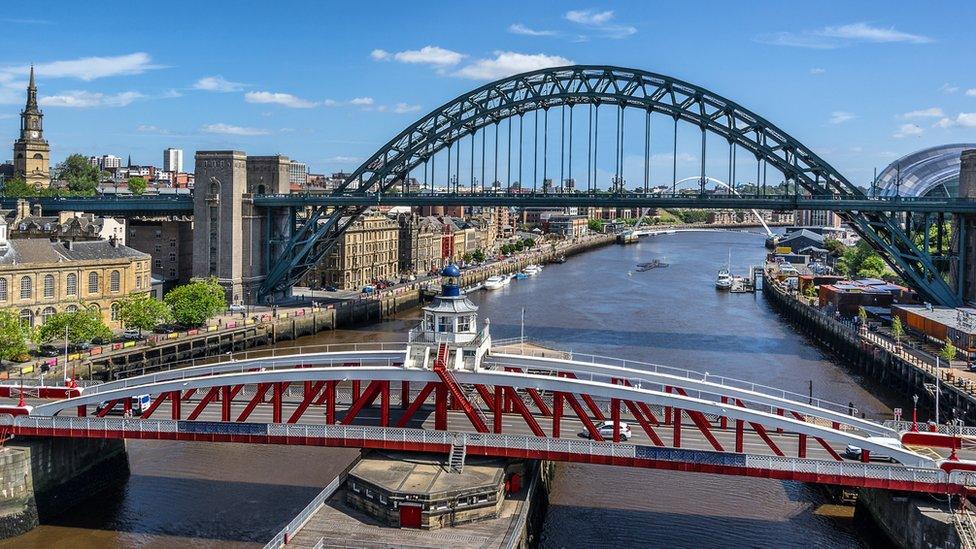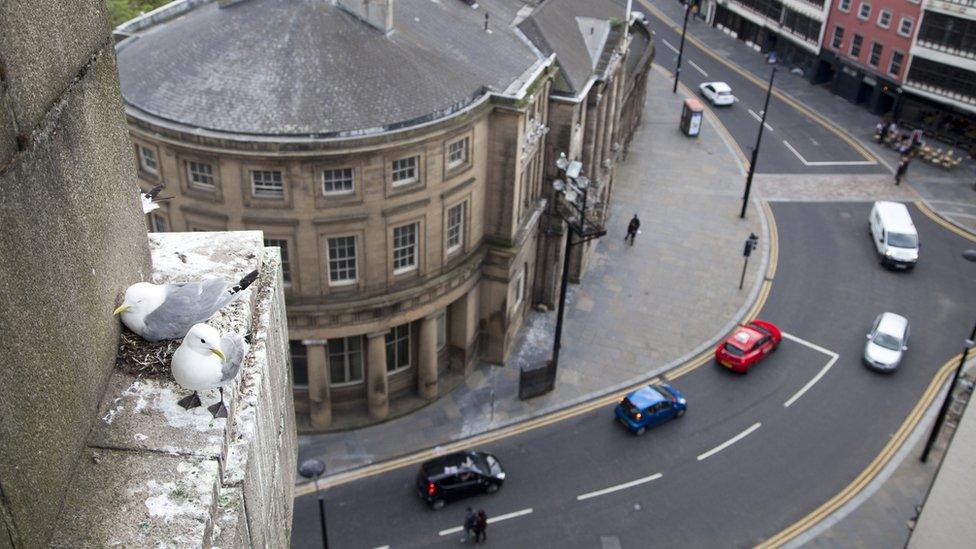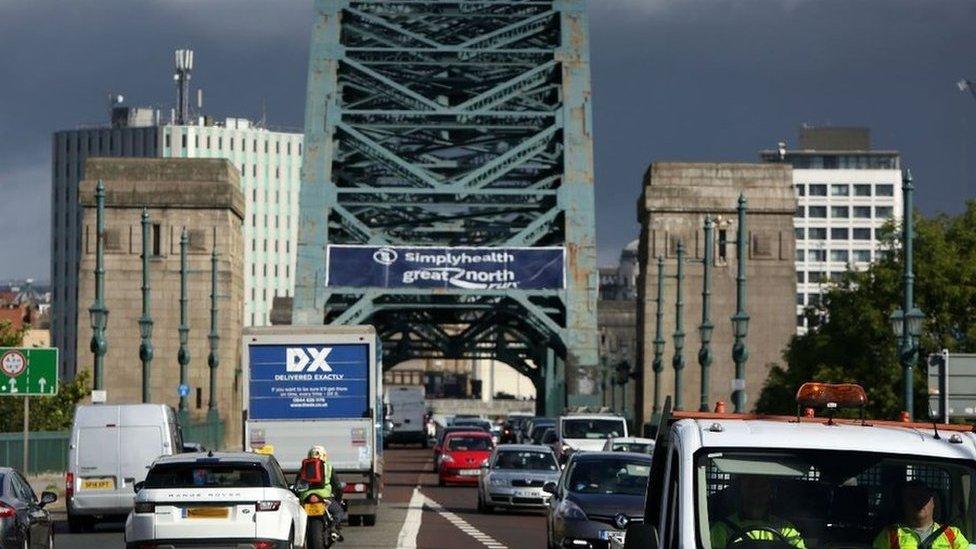Revised Newcastle and Gateshead clean air plans unveiled
- Published

One proposal would see high-polluting vehicles charged to cross the Tyne and Swing bridges
Revised plans for a clean air toll on Tyneside have been unveiled after previously announced proposals met with thousands of objections.
Newcastle, Gateshead and North Tyneside councils had suggested a £12.50 daily fee for high-polluting vehicles as well as charging drivers up to £3.40 to cross bridges over the River Tyne.
New options include a reduced Clean Air Zone (CAZ) and a delay on introducing charges for private cars.
Opponents called tolls a "stealth tax".
The options are:
The previously announced proposal for a toll on the Tyne, Swing and Redheugh bridges applying to all cars, lorries and vans, alongside a Low Emission Zone (LEZ) banning high-polluting buses, taxis and lorries from Newcastle city centre
A CAZ covering Newcastle city centre, with the highest-polluting vehicles being charged to enter
A Newcastle city centre CAZ affecting non-compliant buses, taxis, HGVs and vans alongside junction changes and lane restrictions on the Tyne Bridge and Central Motorway. A charge on private cars would be delayed to an unspecified date
The councils have not stated the fees in their latest submission, the Local Democracy Reporting Service said.

A reduced Clean Air Zone would cover Newcastle city centre
Newcastle City Council's cabinet member for transport and air quality, Arlene Ainsley, said the authorities were looking at improving public transport and how to "protect low income households from the impact of charging".
The area of the proposed CAZ has been reduced following public objections and no longer includes the centre of Gateshead or Gosforth and Wallsend.
The councils amended their proposals after more than 19,000 people provided feedback.
Some residents said they viewed tolls as "financially wounding stealth tax, targeting those on the lowest incomes with non-compliant vehicles, making unavoidable journeys to work".
However, the authorities said they must comply with a government order to cut air pollution by 2021.
Final proposals will be submitted to the government in November.
- Published17 July 2019

- Published12 July 2019

- Published9 June 2019
